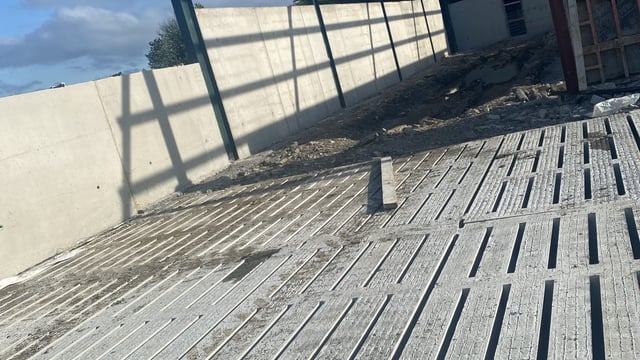Vision Ireland: Only 48 fines for dog fouling issued in 2024
Only 48 fines for dog fouling were issued in Ireland by local authorities in 2024, data gathered by Vision Ireland has revealed.
Vision Ireland highlighted that dog fouling is a public safety issue and can pose health concerns for both children and adults. People who are blind or vision impaired and use mobility aids are particularly at risk.
According to Vision Ireland, councils are tasked with tackling the scourge of dog fouling, but overall an "extremely low" number of fines are issued to people for not cleaning up after their dogs.
Fines totalled 48 and 46 in 2024 and 2023 respectively, both a "significant" decrease from the 82 fines issued in 2022.
Cork County Council led the way in 2024 with 11 fines, while most local authorities issued just one or two. 14 local authorities issued zero fines for dog fouling last year.
The table below outlines the number of fines issued for dog fouling in 2024 by local authority.
| County council | Fines issued for dog fouling |
| Carlow | 0 |
| Cavan | 6 |
| Clare | 1 |
| Cork County Council | 11 |
| Cork City Council | 0 |
| Donegal | 0 |
| Dublin City Council | 0 |
| Dun Laoghaire Rathdown | 0 |
| Fingal | 6 |
| Galway City | 1 |
| Galway County | 1 |
| Kerry | 2 |
| Kildare | 4 |
| Kilkenny | 0 |
| Laois | 3 |
| Leitrim | 0 |
| Limerick City and County | 1 |
| Longford | 0 |
| Louth | 5 |
| Mayo | 0 |
| Meath | 1 |
| Monaghan | 1 |
| Offaly | 0 |
| Roscommon | 2 |
| Tipperary | 0 |
| Sligo | 0 |
| South Dublin | 1 |
| Waterford | 1 |
| Westmeath | 0 |
| Wexford | 0 |
| Wicklow | 1 |
All this week, Vision Ireland’s Clear Our Paths campaign is raising awareness of everyday obstacles faced on footpaths, including dog waste, and is urging the public to take action.
As part of the campaign, a survey of 281 people who are blind or vision impaired explored the issue of footpath obstacles.
Vision Ireland found that 42% of respondents were impacted by dog waste in public spaces on a frequent basis.
Not only does dog fouling present a slipping hazard, but it can also be a major problem for white cane users whose canes are dirtied by faeces. When folded up, this poses a hygiene and health risk.





